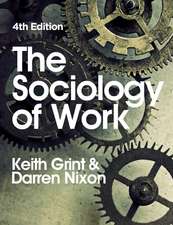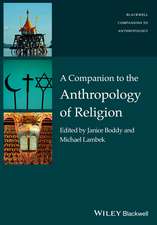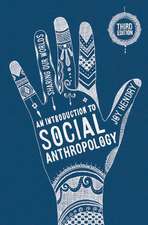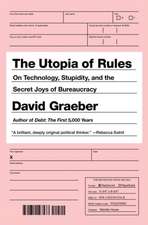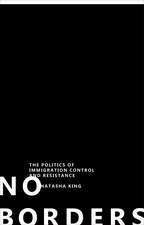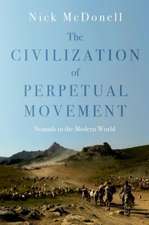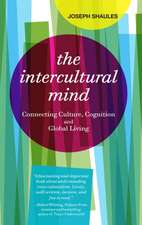Twilight in the Kingdom: Understanding the Saudis: Praeger Security International
Autor Mark A. Caudillen Limba Engleză Hardback – 29 iun 2006 – vârsta până la 17 ani
Din seria Praeger Security International
- 18%
 Preț: 334.19 lei
Preț: 334.19 lei - 8%
 Preț: 335.53 lei
Preț: 335.53 lei - 34%
 Preț: 376.10 lei
Preț: 376.10 lei - 46%
 Preț: 443.64 lei
Preț: 443.64 lei - 29%
 Preț: 240.11 lei
Preț: 240.11 lei - 8%
 Preț: 304.56 lei
Preț: 304.56 lei - 34%
 Preț: 373.82 lei
Preț: 373.82 lei - 19%
 Preț: 412.79 lei
Preț: 412.79 lei - 19%
 Preț: 338.42 lei
Preț: 338.42 lei - 18%
 Preț: 335.62 lei
Preț: 335.62 lei - 27%
 Preț: 377.35 lei
Preț: 377.35 lei - 27%
 Preț: 376.75 lei
Preț: 376.75 lei - 18%
 Preț: 336.46 lei
Preț: 336.46 lei - 18%
 Preț: 321.73 lei
Preț: 321.73 lei - 27%
 Preț: 384.51 lei
Preț: 384.51 lei - 18%
 Preț: 320.50 lei
Preț: 320.50 lei - 18%
 Preț: 320.50 lei
Preț: 320.50 lei - 18%
 Preț: 321.35 lei
Preț: 321.35 lei - 24%
 Preț: 420.54 lei
Preț: 420.54 lei - 14%
 Preț: 335.99 lei
Preț: 335.99 lei - 18%
 Preț: 355.82 lei
Preț: 355.82 lei - 18%
 Preț: 319.83 lei
Preț: 319.83 lei - 18%
 Preț: 334.28 lei
Preț: 334.28 lei - 32%
 Preț: 354.48 lei
Preț: 354.48 lei - 14%
 Preț: 335.14 lei
Preț: 335.14 lei - 38%
 Preț: 405.98 lei
Preț: 405.98 lei - 40%
 Preț: 571.34 lei
Preț: 571.34 lei - 18%
 Preț: 321.85 lei
Preț: 321.85 lei - 18%
 Preț: 323.25 lei
Preț: 323.25 lei - 18%
 Preț: 253.28 lei
Preț: 253.28 lei - 40%
 Preț: 571.50 lei
Preț: 571.50 lei - 14%
 Preț: 333.72 lei
Preț: 333.72 lei - 18%
 Preț: 301.73 lei
Preț: 301.73 lei - 19%
 Preț: 352.96 lei
Preț: 352.96 lei - 26%
 Preț: 387.80 lei
Preț: 387.80 lei - 18%
 Preț: 302.77 lei
Preț: 302.77 lei - 14%
 Preț: 333.91 lei
Preț: 333.91 lei - 17%
 Preț: 325.80 lei
Preț: 325.80 lei - 24%
 Preț: 338.58 lei
Preț: 338.58 lei - 34%
 Preț: 414.73 lei
Preț: 414.73 lei - 18%
 Preț: 354.30 lei
Preț: 354.30 lei - 29%
 Preț: 254.29 lei
Preț: 254.29 lei - 18%
 Preț: 354.11 lei
Preț: 354.11 lei - 18%
 Preț: 334.38 lei
Preț: 334.38 lei - 14%
 Preț: 302.68 lei
Preț: 302.68 lei - 18%
 Preț: 322.97 lei
Preț: 322.97 lei - 27%
 Preț: 376.50 lei
Preț: 376.50 lei - 27%
 Preț: 322.81 lei
Preț: 322.81 lei - 27%
 Preț: 382.91 lei
Preț: 382.91 lei - 18%
 Preț: 320.87 lei
Preț: 320.87 lei
Preț: 339.52 lei
Preț vechi: 467.72 lei
-27% Nou
Puncte Express: 509
Preț estimativ în valută:
64.97€ • 69.47$ • 54.17£
64.97€ • 69.47$ • 54.17£
Carte tipărită la comandă
Livrare economică 18 aprilie-02 mai
Preluare comenzi: 021 569.72.76
Specificații
ISBN-13: 9780275992521
ISBN-10: 0275992527
Pagini: 176
Dimensiuni: 156 x 235 x 21 mm
Greutate: 0.44 kg
Editura: Bloomsbury Publishing
Colecția Praeger
Seria Praeger Security International
Locul publicării:New York, United States
ISBN-10: 0275992527
Pagini: 176
Dimensiuni: 156 x 235 x 21 mm
Greutate: 0.44 kg
Editura: Bloomsbury Publishing
Colecția Praeger
Seria Praeger Security International
Locul publicării:New York, United States
Notă biografică
Mark A. Caudill is a 15-year U.S. Foreign Service officer who served in Jeddah, Saudi Arabia, from 1999 to 2002. Currently he is Vice Consul, U.S. Consulate General, Istanbul, Turkey.
Cuprins
Foreword by Steve CollAcknowledgmentsMap of Saudi ArabiaIntroduction: Bricks and MortarChapter 1. Life and DeathMarriage, Money, and Men of Modest MeansFlowers for OusmanThe Life of SpiceChapter 2. Holy CitiesMedina Yesterday and TodayThe KiswaThe King's HighwayThe Darb ZubaydahThe MawaqeetChapter 3. The HajjSoup Nuts toMecca Prepares for PilgrimsA Pilgrim's JournalChapter 4. God and ManMagicLawyers, Courts, and ShariaDebating Religious FreedomA Matter of InterpretationWhisperersThe Hejazi Origins of Wahhabi IntoleranceChapter 5. HinterlandsHow Green Is My ValleyLand of Water, Fire, and IreSee Rock CityTribalism in the AsirChapter 6. Rhyme and ReasonHuman RightsNotesGlossaryBibliographic NoteIndex
Recenzii
Essential Reading US diplomat and Muslim Mark A. Caudill went to great lengths in Twilight in the Kingdom: Understanding the Saudis to provide a comprehensive and balanced view of the Kingdom of Saudi Arabia, and the Muslim rites which guide the faithful to perform religious oblations at Mecca. In so doing, he became one of a select band of Westerners who have done great work in penetrating the veil which has shrouded Arabia for centuries..Cauldill's book is full of insights, and it is difficult to capture the breadth and detail of his work--a compilation of reports written during his tenure in country, with later additions--other than to say that it would be foolhardy for an analyst to attempt to assess modern Saudi Arabia without it.
Active-duty FSO Mark Caudill bases Twilight in the Kingdom: Understanding the Saudis on his own dispatches from Consulate General Jeddah, where he served as a political officer from 1999 to 2002--in the crucial period before and after the 9/11 attacks. Caudill's book is an important and unique look into Saudi Arabia that is not available in all the previously published material on the country, says Saudi journalist Faiza Saleh Ambah of this book. A converted Muslim who could pass for Syrian, Caudill lived outside the embassy compound, traveld widely and participated in the local life and culture. He was rewarded with important insights into the reality of Saudi Arabia behind the mask of official cliches maintained by the ruling family. History will show, he believes, that American leaders should have paid more attention to these realities.
Caudill, a 15-year US Foreign Service officer who served in Saudi Arabia from 1999 to 2002, offers an edited compilation of his unclassified dispatches to Washington policymakers on the desert kingdom. His perspective differed from many other US diplomats in that he purposefully sought to participate in the daily lives of the country's various strata by converting to Islam and worshipping in mosques that variously catered to South Asian guest workers, Yemeni and Sudanese illegal aliens, and middle class and lower-middle class Saudi citizens, among others. From this project comes a view that is still distinctly American in its concerns but perhaps more nuanced and informed than if Caudill had limited his experiences to meetings with members of the sclerotic House of Saud, as is the case with most US government officials.
Active-duty FSO Mark Caudill bases Twilight in the Kingdom: Understanding the Saudis on his own dispatches from Consulate General Jeddah, where he served as a political officer from 1999 to 2002--in the crucial period before and after the 9/11 attacks. Caudill's book is an important and unique look into Saudi Arabia that is not available in all the previously published material on the country, says Saudi journalist Faiza Saleh Ambah of this book. A converted Muslim who could pass for Syrian, Caudill lived outside the embassy compound, traveld widely and participated in the local life and culture. He was rewarded with important insights into the reality of Saudi Arabia behind the mask of official cliches maintained by the ruling family. History will show, he believes, that American leaders should have paid more attention to these realities.
Caudill, a 15-year US Foreign Service officer who served in Saudi Arabia from 1999 to 2002, offers an edited compilation of his unclassified dispatches to Washington policymakers on the desert kingdom. His perspective differed from many other US diplomats in that he purposefully sought to participate in the daily lives of the country's various strata by converting to Islam and worshipping in mosques that variously catered to South Asian guest workers, Yemeni and Sudanese illegal aliens, and middle class and lower-middle class Saudi citizens, among others. From this project comes a view that is still distinctly American in its concerns but perhaps more nuanced and informed than if Caudill had limited his experiences to meetings with members of the sclerotic House of Saud, as is the case with most US government officials.


